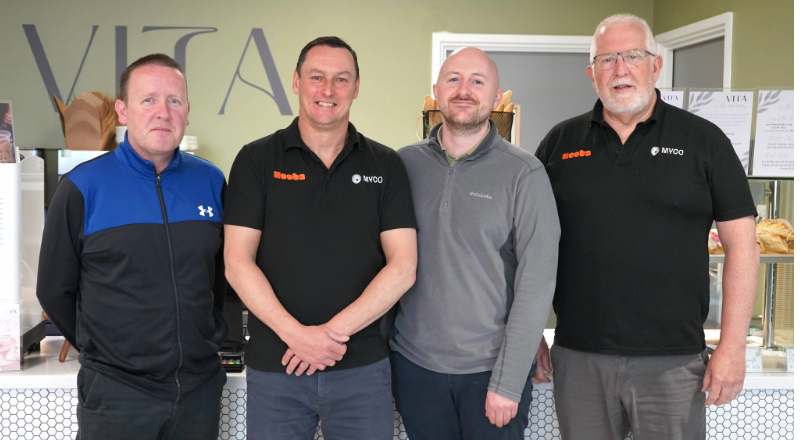Research collaboration leads to food supply partnership
A plant-based manufacturer’s new range, which has been supported by innovative research at Teesside University, will be supplied to over 20,000 students after the company secured a deal with the university.

Myco, the developer of Hooba, has rolled out a new ‘Save the Earth’ hybrid range of burgers, sausages and mince.
The carbon footprint-friendly range is a 50/50 split of meat and Hooba – which is made from vertically farmed oyster mushrooms – and aims to encourage people to ‘painlessly’ eat less meat to help slow global warming.
The deal with Teesside University builds on a wider partnership between Myco and Teesside, which has seen the Middlesbrough-based university utilise its expertise in computing and sustainable technologies to support the company develop its innovative food range.
'Young adults are the generation driving forward the meat reduction movement, and by giving students access to the ‘Save the Earth’ range, we hope it will mean less meat consumed – which is great news for the planet,' said Myco’s Chief Operating Officer, David Wood, who revealed the company was also in talks to supply several other universities.
As part of their ongoing partnership Myco and Teesside University have collaborated to develop AI technology to monitor the company’s innovative vertical farms, while the University’s food scientists have also helped Myco refine its ingredients to make them more sustainable.
The catering outlet in BIOS, Teesside University’s £36.9m cutting-edge science building which houses its food science laboratories, will serve the Myco products, providing a seamless transition between impactful research and end user.
Darren Vipond, Director of Campus Services at Teesside University, said: 'As a University which puts sustainability at the heart of its mission, we’re delighted to be able to help our staff, students and visitors reduce their carbon footprint by offering these reduced meat products in our outlets.
'In particular, it’s fantastic that we’re able to offer a product which has been developed with the help of our own academic expertise and which is destined to have a major impact on changing people’s eating habits.'
For Myco, the goal with the Save the Earth range is to enable even the strictest carnivore to have a positive environmental impact – without compromising their requirement to eat meat or the associated taste and textures that come with meat.
It’s fantastic that we’re able to offer a product which has been developed with the help of our own academic expertise and which is destined to have a major impact on changing people’s eating habits.'
'The world is warming at a rapid rate and the sad and scary fact is we are facing a race against time for the planet’s survival,' added David.
'Meat production is one of the biggest contributors to global warming, yet the average UK adult eats almost 100lbs of meat each year which the planet simply can’t sustain.
'However, we also have to be realistic. For years, have tried giving up meat and struggled due to the taste and texture of alternative.
'And by working with, rather than against the meat industry to create hybrid options like our Save the Earth range, we are finding tasty solutions that for carnivores, still feel like meat.'
And perhaps even more crucially, hybrid products could be a gamechanger for the UK Government which is facing an uphill struggle to reach its 2050 Net Zero goal.
Among a raft of recommendations published in the recent annual Carbon Report – undertaken by Labour’s Climate Committee – scientists warned that Brits would need to eat around ‘two kebabs worth of meat’ a week to help reach that 2050 goal.
That equates to around 25 per cent less meat. However, with hybrid products, that rate could potentially be doubled, which could reduce carbon emissions by almost 1.5m tonnes per year.
'Be it kebabs or a juicy burger, the joy of hybrid products is they allow people to continue eating what they like – and helping to give everyone a future in the process,' added David.
Launched last year, Hooba is produced at one of the most sustainable food production units in the UK.
Made from oyster mushrooms farmed vertically inside the Leeming Bar site, the unique process previously resulted in the Hooba quarter pounder being dubbed Britian’s ‘greenest burger’.
